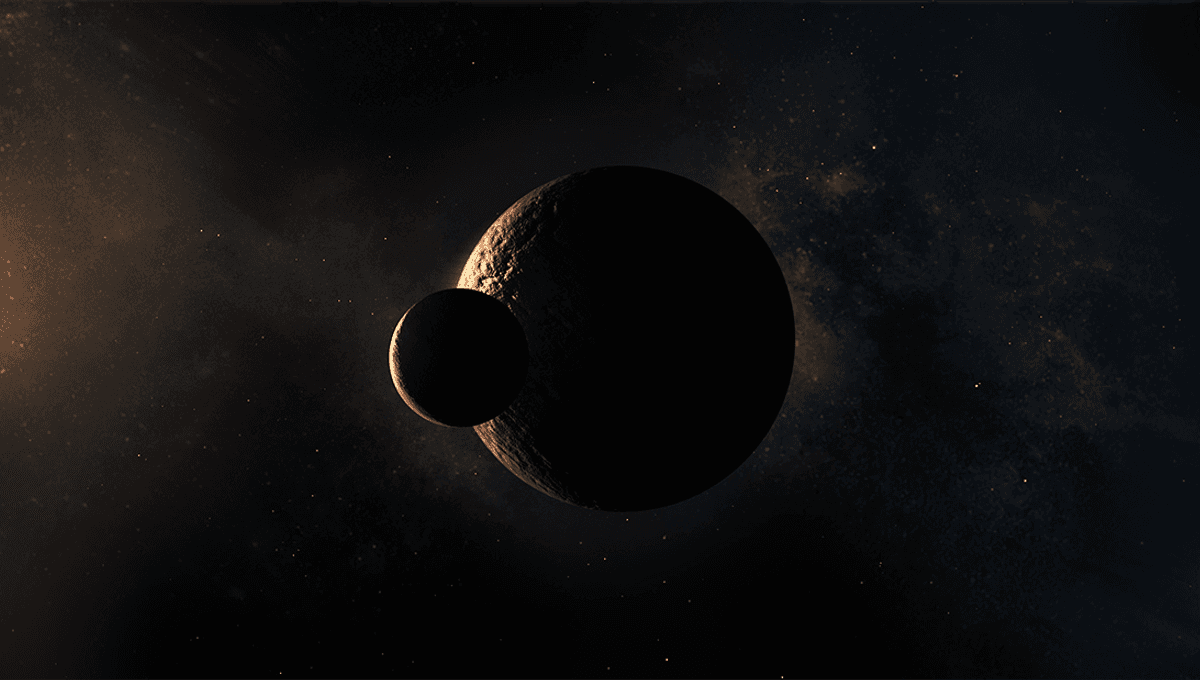
A team of astronomers poring through old astronomical data may have seen a candidate for the elusive Planet Nine – a hypothetical ninth planet in the Solar System, far beyond the orbit of Neptune.
In 2016, two astronomers at Caltech presented evidence that six objects past the orbit of Neptune were bunched together in a way that suggested they were being “herded” by something with a large gravitational pull. Since then, Konstantin Batygin, Mike Brown, and others have attempted to search for such a planet.
While it remains elusive, many astronomers believe that it could explain puzzles such as the tilt of the orbit of long-period Kuiper belt objects, and objects that orbit the Sun in a retrograde direction between the giant planets.
“It could also make our Solar System seem a little more ‘normal’,” NASA explains. “Surveys of planets around other stars in our galaxy have found the most common types to be ‘super Earths’ and their cousins — bigger than Earth, but smaller than Neptune. Yet none of this kind exist in our Solar System. Planet Nine would help fill that gap.”
While we have found thousands of exoplanets – or planets orbiting other stars – finding planets in our own Solar System is not quite so easy. We can see the effect that an exoplanet has on its star through its gravitational influence, or simply blocking out light from the star from our perspective and making it dimmer, among other methods.
But for our own Solar System, and from the vantage point of Earth, only Venus and Mercury pass in front of the Sun. Planets large enough and close enough to the Sun to reflect sunlight like Jupiter and Saturn were spotted as they orbit the Sun, while Neptune, much further out, was discovered through its gravitational effect on Uranus.
Planet Nine – should it actually exist – is predicted to be far beyond the orbit of Neptune, perhaps 500-700 astronomical units (AU) from the Sun, with one AU being the distance between the Earth and the Sun. At those distances, despite a predicted massive size, it would not reflect much sunlight at us.
But in a new paper, one team attempted to look for evidence of the planet by looking through data spanning decades from two infrared surveys of the sky.
“We searched for Planet Nine candidates in a heliocentric distance range of 500 – 700 AU and a mass range of 7 – 17M⊕ by using two far-infrared all-sky surveys with a 23-year epoch difference,” the team explains in their pre-print paper, which has not yet been peer reviewed. “Planet Nine is expected to move slowly on the sky due to its great distance beyond Neptune’s orbit. Therefore, we searched for slow-moving objects that moved from an IRAS position to another AKARI position after 23 years.”
The team initially found 13 candidates that warranted closer inspection, before narrowing this down to just one.
“After the rigorous selection, including the visual image inspection, we found one good candidate pair, in which the IRAS source was not detected at the same position in the AKARI image and vice versa, with the expected angular separation of 42′ – 69.6′,” the team explained. “The AKARI detection probability map indicated that the AKARI source of our candidate pair satisfied the requirements for a slow-moving object with two detections on one date and no detection on the date of 6 months before.”
While the team believes that the candidate warrants follow-up investigations, the data is not enough to predict an orbit of the object, if it happened to be the elusive Planet Nine. Further observations will be needed to close in on the planet, if it exists at all.
The study is available to read on the pre-print server arXiv.
Source Link: Astronomers Find Potential Candidate For Planet Nine In 40-Year-Old Data